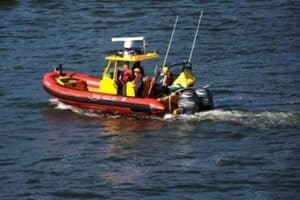The French said only wines made in the Champagne region of France could use the name or any derivative thereof.

As far as South Africans are concerned, the phrase “sour grapes” has particular relevance when it comes to the French, Italian and Portuguese wine industries.
People are aware how Les Cock wombles not only blocked our use of the word Champagne when it came to Mzansi-produced bubblies but also threw a hissy fit when we gave them the appellation Méthode champenoise made in the traditional manner of France’s sparkling wines.
The French said only wines made in the Champagne region of France could use the name or any derivative thereof. More recently, Italian wine authorities forbade South African distillers to use the name grappa for grape husk spirit.
I’m not sure about grappa – which, as far as I’m concerned, is vile from whichever corner of the planet it emanates – but I’m sure French winemakers did their collective thing only after the South African (and other) sparkling wines started kicking their butts in international competitions and markets.
Similarly, we are no longer allowed to label one of our most popular fortified wines as Port even though the drink’s adherents stubbornly continue to do so.
ALSO READ: Preserving tradition: The craftsmen behind Hong Kong’s culinary treasures

A tale of South African triumph and Portuguese backlash
Port is typically produced from Portuguese grape varieties such as Touriga Nacional and Tinta Barroca.
The story, as told to me this week during a visit to the South African Port “capital” of Calitzdorp in the western Karoo, behind the story might be apocryphal but it is both entertaining and illuminating.
In 1997 (apparently), the late South African wine guru David Hughes was invited to Portugal as a judge in the annual “best in the world” Port wine competition.
It’s a blind-tasting competition – all the bottles are wrapped so the judges have no idea which wine they taste when they make their evaluations.
The story is that Hughes slipped several South African Ports into the mix and, when the results were announced, three of five gold medal winners came from the Western Cape.
Hughes was allegedly given the wine connoisseur’s equivalent of the bum’s rush from Portugal and the upshot was that only products from the Douro River valley near the seaboard city of Porto may now bear the name.

Wine labels and Botanical Titles
There was a legislative loophole that allowed South African wines produced before 2010 to continue to be described as Port on their labels and it burns Portuguese wine making arses as there are still enough stocks of these to threaten their name in elite markets.
The sneakiest name-snaffling bastards in the world, though, are the Australian and it has nothing to do with wine.
Herman Charles Bosman would be just one of myriad South African literary figures and naturalists to turn in their graves if they learned that one of the country’s most iconic trees is no longer the thorn trees commonly known as the withaak or lekkerruikpeul.
That’s because Antipodeans have been given dibs on the name acacia despite the fact that the tree was first described scientifically in Africa in 1753, more than a decade before explorer James Cook stumbled upon an outsize island that quickly identified itself as an English penal colony.
ALSO READ: Brehat to fight ‘overtourism’
Roses and acacia in perspective
Yes, Australia has about 1 000 indigenous species of acacia but there are roses all over the world and nobody has ever thought of one grown outside its borders as smelling less sweet or, for that matter, being less of a rose.
So, the next time you go to a game reserve and see a giraffe snacking on an umbrella tree, you can either try to impress your fellow game viewers by telling them they’re watching Giraffa giraffa giraffa browsing on a Senegalia or give the nearest Aussie bushwhacker a bloody good kicking.
Then sit back and toast your patriotic action with a glass of Calitzdorp port.
NOW READ: Air China to expand tourism from home base into Africa
Support Local Journalism
Add The Citizen as a Preferred Source on Google and follow us on Google News to see more of our trusted reporting in Google News and Top Stories.






